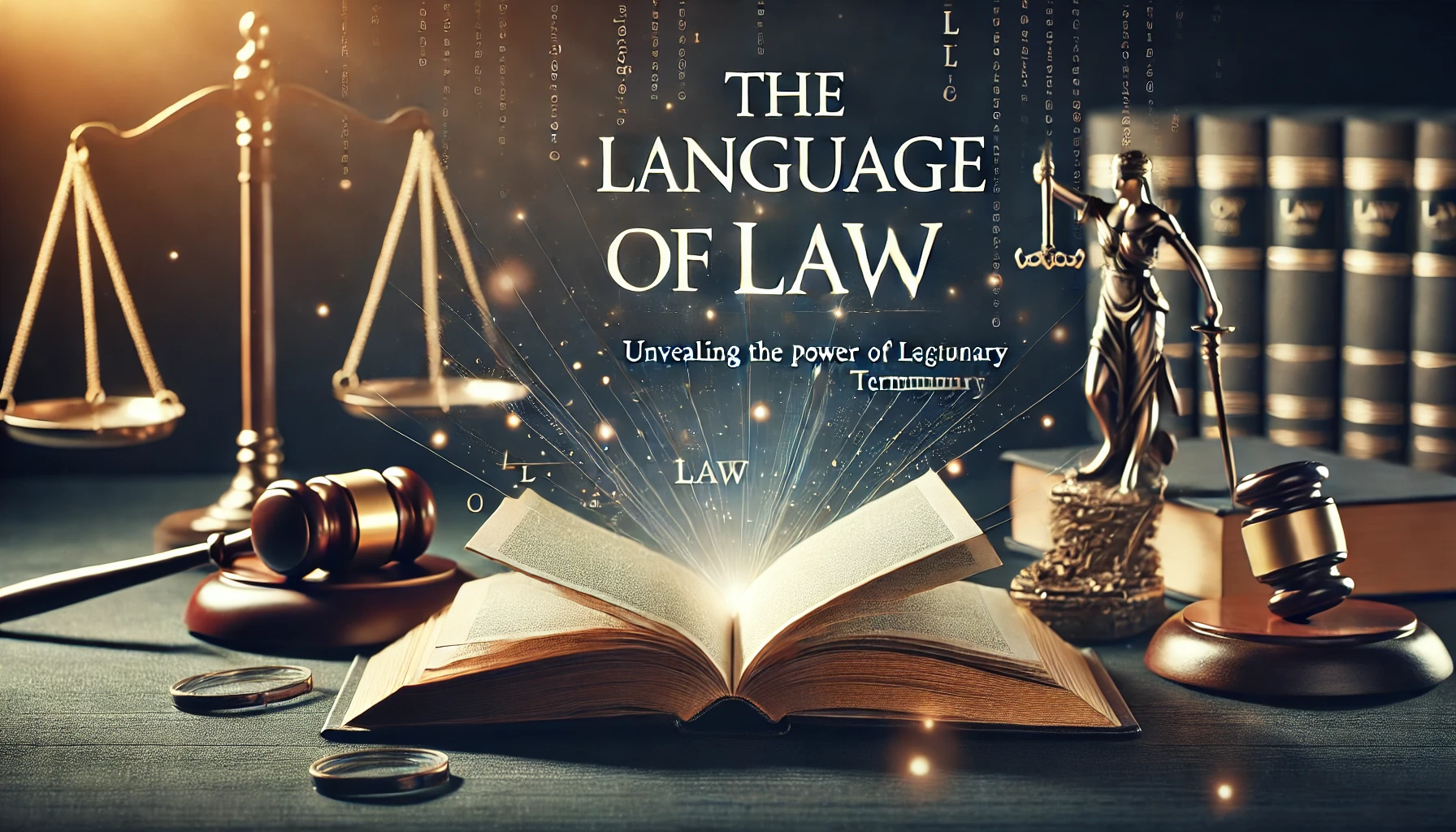The language of law is a unique and powerful tool, designed to convey complex ideas with precision and authority. Legal terminology is not just a collection of technical words; it is the framework through which laws are written, interpreted, and enforced. The precise use of language ensures clarity, minimizes ambiguity, and upholds the principles of justice.
This article delves into the significance of legal terminology, its origins, and its impact on law and society, illustrating how words shape legal systems and influence justice.
The Origins of Legal Terminology
Legal language has evolved over centuries, drawing from diverse linguistic traditions. Latin, French, and Old English heavily influence modern legal terminology. Phrases like habeas corpus and bona fide reflect Latin roots, while terms such as estate and tort come from French.
These historical influences highlight the interconnectedness of law with cultural and linguistic evolution. Understanding these origins enhances comprehension and appreciation of legal concepts.
Precision: The Core of Legal Language
The defining characteristic of legal terminology is precision. Every word in a legal document carries weight and significance. Ambiguity can lead to misinterpretation and unintended consequences, making precise language essential.
For example, the difference between “shall” and “may” in legal texts determines whether an action is mandatory or optional. This precision ensures that legal documents are enforceable and consistent with legislative intent.
The Role of Legal Definitions
Legal definitions are critical in shaping how laws are applied. Key terms are often explicitly defined in statutes to eliminate ambiguity and provide uniform understanding.
For instance, the definition of “contract” in contract law specifies the elements required for a binding agreement. These definitions ensure that legal principles are consistently applied across different cases, maintaining the integrity of the legal system.
Legal Jargon: A Barrier or a Necessity?
Critics often argue that legal jargon creates barriers between the legal system and the public. Complex terms like res judicata or mens rea may seem inaccessible to laypersons, fostering perceptions of elitism.
However, legal jargon serves a purpose. It condenses intricate concepts into precise terms, facilitating clear communication among legal professionals. Efforts to simplify legal language aim to bridge the gap without compromising accuracy.
The Influence of Legal Terminology on Justice
The choice of words in legal proceedings can significantly impact outcomes. Lawyers and judges use language strategically to advocate for their positions or interpret statutes. The persuasive power of legal terminology shapes arguments, verdicts, and public perception.
For example, framing a defendant’s actions as “negligence” versus “recklessness” can influence the severity of penalties. Such distinctions underscore the power of words in delivering justice.
The Globalization of Legal Terminology
In a globalized world, legal terminology must transcend linguistic and cultural boundaries. International treaties, trade agreements, and human rights conventions require universally understood legal terms.
Organizations like the United Nations and the World Trade Organization work to standardize terminology, ensuring consistency across jurisdictions. This harmonization facilitates international cooperation but also highlights the challenges of aligning diverse legal traditions.
Legal Terminology in Technology and Innovation
The rise of technology has introduced new challenges for legal terminology. Concepts like “data privacy,” “cybersecurity,” and “artificial intelligence liability” require precise definitions to address emerging issues.
For example, the European Union’s General Data Protection Regulation (GDPR) defines terms like “personal data” and “data controller” to ensure clarity in enforcement. As technology evolves, legal language must adapt to maintain relevance and effectiveness.
The Accessibility of Legal Language
Efforts to make legal language more accessible have gained momentum in recent years. Plain language initiatives aim to simplify legal documents, making them easier for non-experts to understand without compromising their legal validity.
For instance, many jurisdictions now require consumer contracts to be written in plain language, enhancing transparency and empowering individuals to make informed decisions.
The Future of Legal Terminology
The evolution of legal terminology will continue as societies and technologies change. Artificial intelligence, environmental challenges, and global conflicts will demand new terms and concepts. Legal professionals must remain adaptable, ensuring that language evolves to meet contemporary needs while preserving clarity and precision.
Additionally, greater emphasis on inclusivity and diversity in legal language will ensure that all voices are represented and respected in legal discourse.
Conclusion
Legal terminology is the backbone of the law, shaping how justice is understood, interpreted, and enforced. Its precision, historical richness, and adaptability make it a vital tool for legal professionals and society at large. However, the challenge lies in balancing complexity with accessibility, ensuring that legal language serves both its technical purpose and the public good.
By understanding and respecting the nuances of legal terminology, we can foster a legal system that is not only effective but also inclusive and equitable. As the language of law evolves, it will continue to reflect and influence the values and priorities of society.





